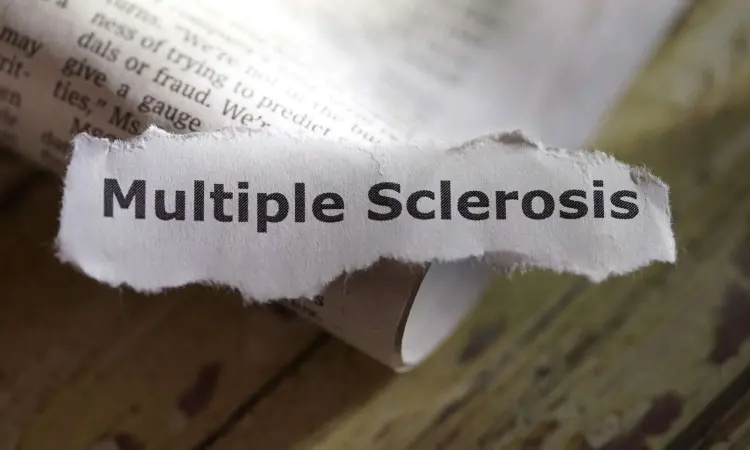- Home
- Medical news & Guidelines
- Anesthesiology
- Cardiology and CTVS
- Critical Care
- Dentistry
- Dermatology
- Diabetes and Endocrinology
- ENT
- Gastroenterology
- Medicine
- Nephrology
- Neurology
- Obstretics-Gynaecology
- Oncology
- Ophthalmology
- Orthopaedics
- Pediatrics-Neonatology
- Psychiatry
- Pulmonology
- Radiology
- Surgery
- Urology
- Laboratory Medicine
- Diet
- Nursing
- Paramedical
- Physiotherapy
- Health news
- Fact Check
- Bone Health Fact Check
- Brain Health Fact Check
- Cancer Related Fact Check
- Child Care Fact Check
- Dental and oral health fact check
- Diabetes and metabolic health fact check
- Diet and Nutrition Fact Check
- Eye and ENT Care Fact Check
- Fitness fact check
- Gut health fact check
- Heart health fact check
- Kidney health fact check
- Medical education fact check
- Men's health fact check
- Respiratory fact check
- Skin and hair care fact check
- Vaccine and Immunization fact check
- Women's health fact check
- AYUSH
- State News
- Andaman and Nicobar Islands
- Andhra Pradesh
- Arunachal Pradesh
- Assam
- Bihar
- Chandigarh
- Chattisgarh
- Dadra and Nagar Haveli
- Daman and Diu
- Delhi
- Goa
- Gujarat
- Haryana
- Himachal Pradesh
- Jammu & Kashmir
- Jharkhand
- Karnataka
- Kerala
- Ladakh
- Lakshadweep
- Madhya Pradesh
- Maharashtra
- Manipur
- Meghalaya
- Mizoram
- Nagaland
- Odisha
- Puducherry
- Punjab
- Rajasthan
- Sikkim
- Tamil Nadu
- Telangana
- Tripura
- Uttar Pradesh
- Uttrakhand
- West Bengal
- Medical Education
- Industry
Stem cell therapy can safely slow progression of relapsing-remitting MS

Stem cells harvested from a person's own bone marrow or blood, can safely slow progression of the most common form of the autoimmune disease, multiple sclerosis, or MS as it’s usually known, finds research published online in the Journal of Neurology Neurosurgery & Psychiatry.
Autologous haematopoietic stem cell transplantation, or aHSCT for short, is usually used to treat blood cancers, and involves harvesting stem cells from the person’s own bone marrow or blood followed by chemotherapy and antibody treatment.
Emerging evidence indicates that it is suitable for treating relapsing-remitting MS-characterised by distinct inflammatory episodes that cause varying degrees of residual disability. But aHSCT has yet to be included in most national clinical guidelines.
The researchers therefore wanted to assess its safety and effectiveness when used in routine healthcare rather than under clinical trial conditions.
They identified 231 patients with relapsing-remitting MS, 174 of whom had been treated with aHSCT before 2020: 2004 was when the first of these patients had been treated with aHSCT. Their average age when treated was 31, and nearly two thirds (64%) were women.
How well aHSCT worked was evaluated by analysing data collected from the Swedish MS registry. And its safety was assessed by scrutinising the patients’ electronic medical records for the 100 days following the procedure.
On average, patients had had their disease for more than 3 years and had received an average of 2 lots of standard treatment (disease modifying drugs) before aHSCT; 23 had not had any treatment.
Around nearly 3 years, on average, after undergoing aHSCT, 20 patients (11%) were given a disease modifying drug.
This study showed no evidence of disease activity in nearly 3 out of 4 (73%) of those treated after 5 years and in almost two thirds (65%) after 10 years.
Among the 149 MS patients with some disability to begin with, more than half (54%;80) improved, just over a third (37%; 55) remained stable, and around 1 in 10 (9%;14) got worse.
The annualised relapse rate was 1.7 in the year before aHSCT and 0.035 during the monitoring period, which averaged 5.5 years. Or put another way, on average, a patient had 1.7 relapses in the year before aHSCT treatment, and 1 relapse every thirtieth year after aHSCT treatment.
Five patients were required intensive care, and 61 developed a bacterial infection within 100 days of treatment. Febrile neutropenia (low white cell count accompanied by a high fever) was the most common side effect, affecting 68% of patients.
Other viral infections were verified in 23 patients (13%). Herpes zoster reactivation was documented in 3, and 3 had a confirmed localised fungal infection. None died as a result of their treatment.
This is an observational study, with no comparative group, which precludes definitive conclusions, the researchers acknowledge.
Nevertheless, they summarise: “Our findings demonstrate that aHSCT for [relapsing-remitting MS] is feasible within regular healthcare and can be performed without compromising safety.
“Our study corroborates the results observed in the only randomised controlled trial conducted to date. We believe that aHSCT could benefit a greater number of MS patients and should be included as a standard of care for highly active MS.”
Reference:
Silfverberg T, Zjukovskaja C, Ljungman P, et alHaematopoietic stem cell transplantation for treatment of relapsing-remitting multiple sclerosis in Sweden: an observational cohort studyJournal of Neurology, Neurosurgery & Psychiatry Published Online First: 25 September 2023. doi: 10.1136/jnnp-2023-331864.
Dr Kamal Kant Kohli-MBBS, DTCD- a chest specialist with more than 30 years of practice and a flair for writing clinical articles, Dr Kamal Kant Kohli joined Medical Dialogues as a Chief Editor of Medical News. Besides writing articles, as an editor, he proofreads and verifies all the medical content published on Medical Dialogues including those coming from journals, studies,medical conferences,guidelines etc. Email: drkohli@medicaldialogues.in. Contact no. 011-43720751


